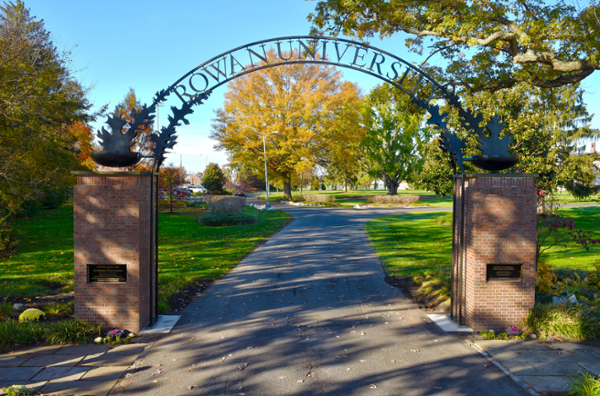Going greener: The Princeton Review recognizes Rowan’s environmental efforts for 2nd straight year
Going greener: The Princeton Review recognizes Rowan’s environmental efforts for 2nd straight year

For the second consecutive year, The Princeton Review this week recognized Rowan University for leadership in environmental action in the organization’s annual Guide to Green Colleges.
In a statement, The Princeton Review noted that every school on its Green Colleges list was committed to making active strides to lower carbon emissions and adopt practices that are environmentally sound.
As a group, the organization wrote, “the schools in the 2025 Edition of the Guide to Green Colleges have impressive sustainability-related statistics:
- 28% of their energy comes from clean and renewable sources
- 46% of their waste is diverted from incinerators or solid-waste landfills
- 98% offer at least one sustainability-focused undergraduate major or degree
Rowan has long committed to practices geared toward improving the environment and reducing the impact of climate change.
Ongoing Rowan green initiatives include:
- the Catalysts for Sustainability project, which is focused on the hiring of new faculty to develop, advance and communicate solutions to existential threats posed by the climate and biodiversity crises;
- academic programs across campus, including in the School of Earth & Environment, the Henry M. Rowan College of Engineering and the Rohrer College Business, that emphasize protecting the environment and reversing climate change;
- scholarly work by numerous faculty, including Dr. Andra Garner in the Department of Environmental Science, whose October 2023 article in the journal Nature Scientific Reports on the rapid development of hurricanes was covered all over the world, including in The New York Times and Newsweek;
- development of the Edelman Fossil Park & Museum, a world-class attraction in its final stages of construction that will feature dynamic lessons about the planet’s history and future. Once open, the museum will be New Jersey’s largest public net-zero carbon emissions building.
The Princeton Review noted that editors working on its annual Guide to Green Colleges surveyed nearly 600 schools about their institutions' sustainability-related policies, practices and programs and questioned students about “green” campus experiences. More than 25 data points from the survey were analyzed and graded on a scale of 60 to 99. Colleges that earned a Green Rating score of 80 or higher were selected for the 2025 edition.